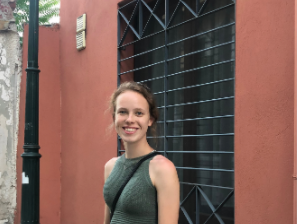Reif: Liberate the regalia
April 15, 2022
Graduation is one month away. While that fills some people with excitement and others with dread, for everyone, it means preparation. Families and friends are making arrangements to attend graduation ceremonies, while students are completing interviews to nail down jobs and higher education. Two weeks ago, all graduates—Bachelor, Master or Doctorate degree—were invited to attend the Grad Fair. Case Western Reserve University advertised it as the “official ‘one stop shop’” for all graduation information, services and products. I’ll admit, I enjoyed the free CWRU thermos as much as the next person, but I quickly felt frustration over being required to purchase our single-use cap and gown if we wanted to walk in graduation.
Oak Hall Cap & Gown provides all CWRU regalia for graduating students. At the CWRU Barnes & Noble bookstore, Oak Hall charged undergraduate students $60.98 for their cap and gown and an additional $12.98 for the tassel for a total of $73.96. Oak Hall charged Master’s students (including people in the Integrated Graduate Studies program) $64.98 for their cap, gown and tassel, and an additional $41.50 for their hood, coming to a total of $106.48. Neither of these totals include the extra $7-10 for tax.
To put into perspective, this regalia requires seven-eight hours of working for students with on-campus minimum wage jobs. One or two shifts of wages are entirely wiped out to cover the cost of regalia required for all students who want to walk in graduation.
For my purpose, I will focus on Bachelor and Master graduates. While the cost of Doctoral regalia is also outrageous—totaling near $1,000—there is a reduced rental option; these gowns, hoods and tams are often worn yearly in future academic positions.
Meanwhile, students never wear their Bachelor and Master gowns again. Well, outside that homemade ceremony you have for your great aunt who couldn’t attend. We are paying eight hours of work for a single-use product. There seems to be a simple alternative.
At comparable universities, regalia is sold for around $60 for Bachelor gowns and $100 for Master’s. This begs the question, why is there no rental option for all regalia? Or, better yet, a single-day use program?
A rental service would help reduce the cost by at least 60% to make the regalia more affordable while still offering a purchase option for those who want a gown for memory; students could still purchase caps if they want to decorate the mortarboard. CWRU or Oak Hall could provide this service.
Alternatively, CWRU could purchase approximately 2,000 gowns for graduating students. Following commencement rehearsal (the day prior to commencement), students would be directed to different areas based on their college and last name to pick up a cap, gown and tassel. Each gown, cap and tassel would have an assigned number, recorded with the student’s name and Case ID. Students could have the option to return the gown following the ceremony or in a few days afterwards. If students fail to return their regalia, they could be charged the cost of the item(s).
These alternatives save students money and would be much more sustainable. The CWRU Commencement site proudly states that the Oak Hall regalia are “made using innovative GreenWeaver fabric made from 100% recycled plastic bottles. This eco-friendly choice reinforces the university’s commitment to sustainability.” Recycling does not excuse people and corporations from trying to reduce unnecessary consumption and waste in the first place. Forcing all students to purchase regalia that will never be worn again is inherently wasteful, especially when there are feasible alternatives.



